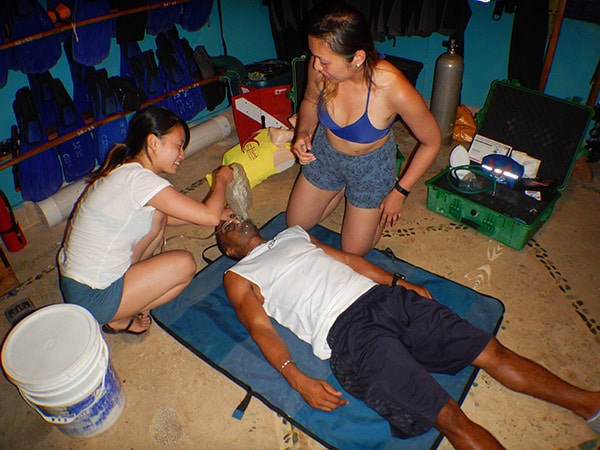Emergency First Response training focuses on building confidence in lay rescuers and increasing their willingness to respond when faced with a medical emergency. Course participants learn simple to follow steps for emergency care and practice applying skills in a non-stressful learning environment. All courses are supported by self-study manuals, videos and quick reference cards to enhance learning and allow you start learning right away.
EFR courses meet the CPR and first aid training requirements for the PADI Rescue Diver course and all professional-level ratings.
The EFR courses are based on internationally recognized medical guidelines for emergency care.

- Primary Care (CPR) – This course teaches you the steps and techniques for handling life-threatening emergencies. You’ll practice eight skills for aiding patients who aren’t breathing, have no heartbeat, may have a spinal injury, may be in shock or who may have serious bleeding. You’ll learn to how to perform CPR and continue to monitor the patient, so that you provide every possible chance of survival while waiting for emergency medical services to arrive.
- Secondary Care (First Aid) – Because many medical conditions are not life-threatening and emergency medical services are sometimes delayed or unavailable, this course teaches you how to provide first aid that eases pain and reduces the risk of further harm. You’ll learn to assess a variety of injuries and illnesses and practice bandaging and splinting.
Looking to gain more experience and earn another certification? Check out our course combos for more information.
The PADI Emergency First Response course takes only one day to complete.


